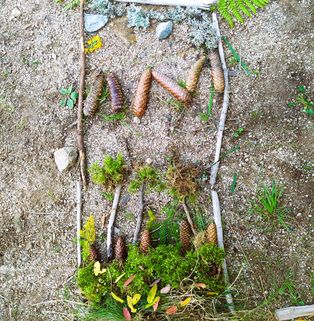
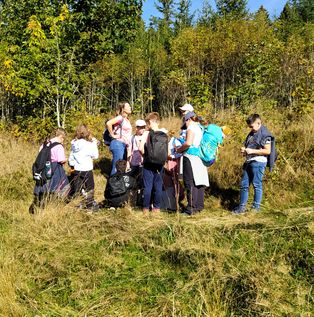
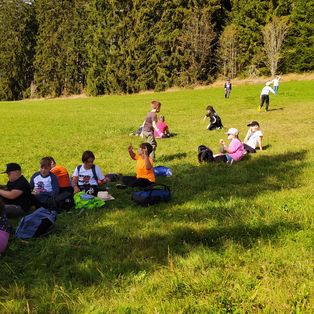
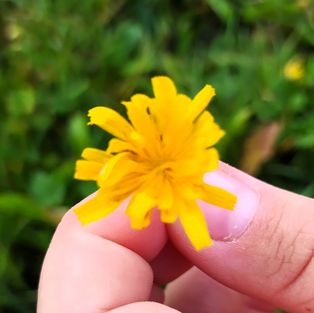
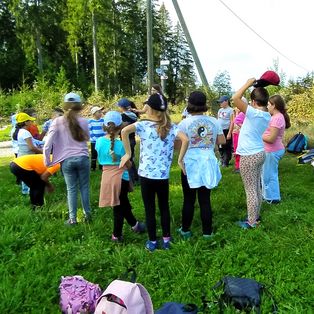
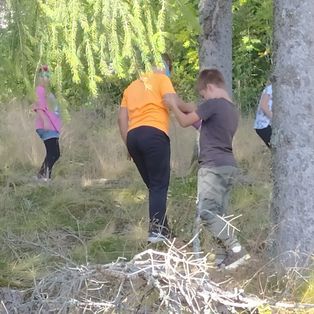
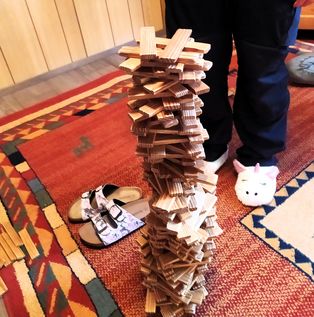
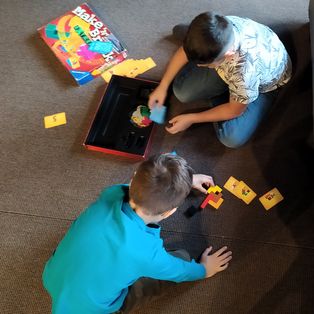
2023 Collaboration with the Schwörstadt children's education center and other kindergartens (supervised by Helmut Hälker)
Actions
Support in the educational sector has some interfaces with species protection. The activities on the nature trail area are usually combined with the formation of an understanding of the connections in nature. Nevertheless, this year we also had a development policy project like in 2019. On two consecutive days, 10 children learned how to live in Madagascar, how lessons take place there and what special animal species can be found in the wilderness there. This was particularly put into practice on the second day. For example, there was a school lesson with singing and clapping under a tree. To prepare lunch, the children brought water in canisters and looked for wood for the fire so that after preparing the sticky rice meal, they could consume it without cutlery, all of which are activities that are part of everyday life in Madagascar. The students really soaked up the new experiences and had a lot of fun doing it.
Another project supported by the foundation was a three-day school trip for the fourth grade. The visit to the Lenzkirch school camp was filled with shared experiences in play, in nature and in social interaction and will certainly be remembered by the children for a long time. All in all, it was a successful end to primary school.
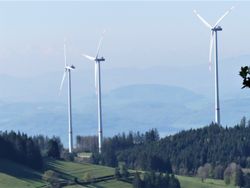
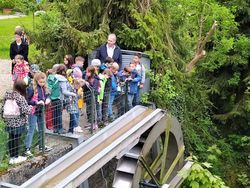
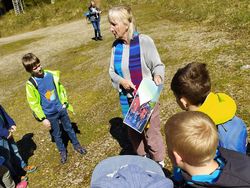
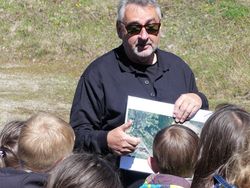
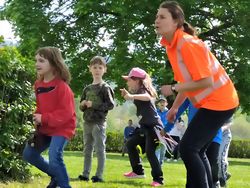

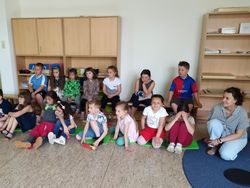
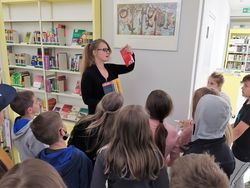
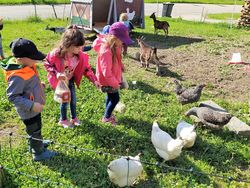
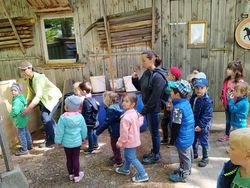
Support for the Children's Education Center and the Schwörstadt Nature Park School 2022 PL H. Hälker
Projects and events
This year, some events and nature park school projects were actively supported by paying travel expenses and meals. With this, FCF primarily provides start-up financing for the certification of a practical and natural nature park school in Schwörstadt. were supported
- Visit to the Wallbach Garbage Museum with the 2nd class
- 3rd class excursion to the wind farm near Gersbach and the Ryburg power plant.
- Visit to the Rheinfelden bookshop and library for the 4th graders
- Excursion to the farm in Fröhnd with the kindergarten
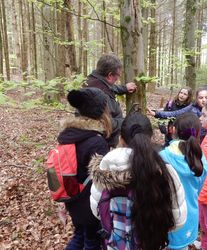
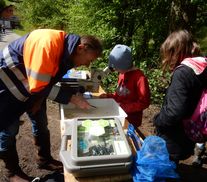
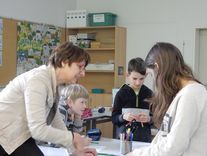
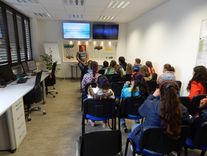
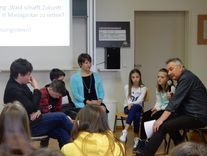
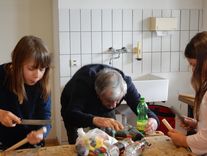
School project 2019 project manager Helmut Hälker
one week in nature
Practice week at the school on Heidenstein in Schwörstadt
In close collaboration with the elementary school Schwörstadt, a local working group of specialists and professionals was created under the direction of the "Forest Creates Future" foundation. From the beginning, the aim of the group was to introduce the practice of sustainable and ecological management to young people. It is a clear insight into the reality and development policy of the FRG on the example of Zambia in Africa. This project is additionally supported by Engagement Global with financial support from the Federal Ministry for Economic Cooperation and Development.
For five days, the students of the 4th grade of the elementary school Schwörstadt learn and experience what sustainable water and forest management means in this region. In comparison, the 20 students learn how the coexistence of humans and nature in Zambia and Madagascar takes place and how to handle the resource of drinking water there.
What were the highlights?
- Forest and natural history excursion
- Studies of water quality
- visit hydropower plants
- Sightseeing waterwork Maulburg
- Excursion to the treatment plant Herten
- Change of perspectives from the perspective of Africa
- Cultural experience Zambia and Madagascar
- Comparison Zambia with Germany
- constructive future work
At the end of the exciting practice week is a new beginning. The primary school at Heidenstein in Schwörstadt is moving closer to the Lubanga Shabongwe Basic School in Namwala Zambia and is partnering.